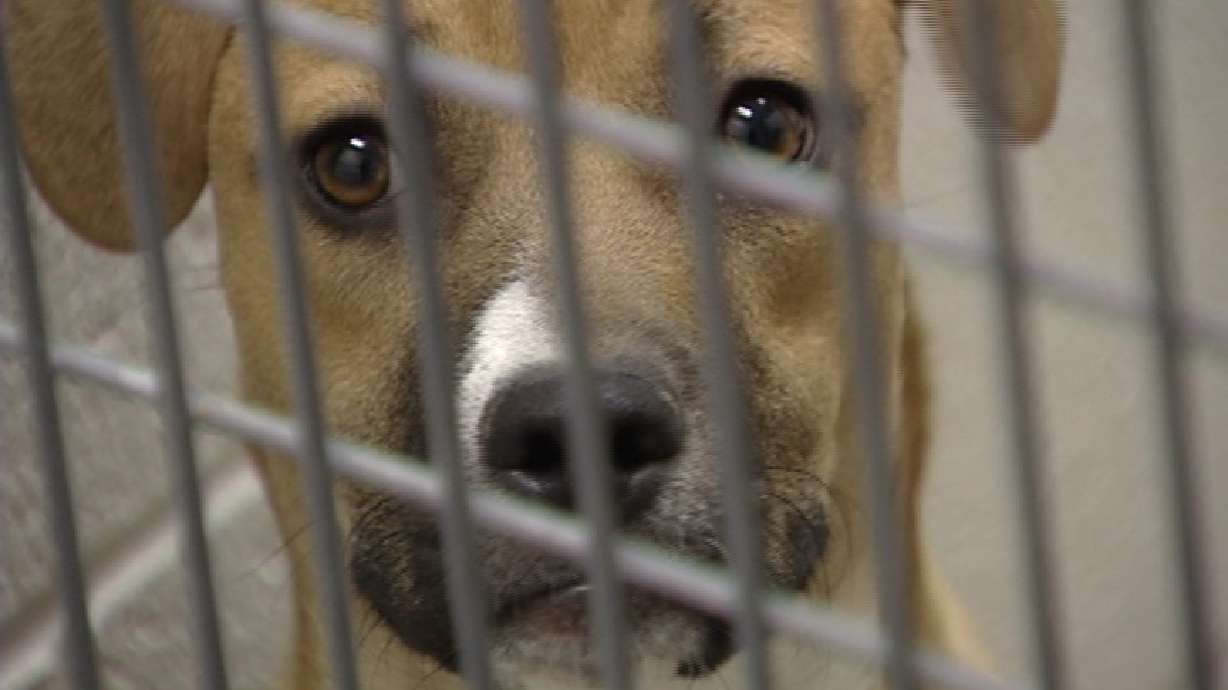Estimated read time: 2-3 minutes
This archived news story is available only for your personal, non-commercial use. Information in the story may be outdated or superseded by additional information. Reading or replaying the story in its archived form does not constitute a republication of the story.
FRUIT HEIGHTS, Utah (AP) -- Abandoned dogs, cats and livestock from Utah animal shelters are regular subjects of laboratory research at the University of Utah each year.
That's because of a little-known state law that requires government-run pounds to turn animals over to researchers if asked.
The practice gained wider publicity after the animal rights group People for the Ethical Treatment of Animals earlier this month reported findings from one of its agents who spent eight months working undercover at University of Utah research facilities.
University officials have vigorously denied PETA complaints about neglectful and harmful conditions at the labs. They acknowledge use of shelter animals in research for nearly two decades.
They said they only collect animals from shelters willing to participate and add that pound animals are steered toward nonlethal experiments. Cats and dogs at the lab get excellent veterinary care, and survivors are placed into a volunteer-run adoption program, they said.
Roughly a third of the 276 shelter animals taken to the university's labs in 2007 and 2008 were later adopted, according to state records.
"The public needs to understand that we are all pet owners," said Jack Taylor, director of the university's Office of Comparative Medicine and a veterinary pathologist. "These animals are used in research that is helpful to humans and animals and then returned to a normal existence as soon as possible."
The Humane Society of Utah wants a repeal of the law that allows animals from government-funded shelters to be used for research.
"Mandatory pound seizure is disastrous to appropriate sheltering of companion animals," said Holly Sizemore, executive director of No More Homeless Pets in Utah, a nonprofit aimed at ending animal euthanasia.
She called it an "archaic" law that leaves shelters in a difficult position.
"It is what it is," said Davis County animal control officer Curtis Andersen, whose facility is the university's biggest supplier of shelter animals. "We do it because the law requires it."
The law says shelters have to make "reasonable efforts" to find homes for animals before they're sold to a lab.
The cost is $20 per dogs and $15 per cat -- far less than the university would have to pay if it bought animals solely bred for research.
------
Information from: The Salt Lake Tribune
(Copyright 2009 by The Associated Press. All Rights Reserved.)









